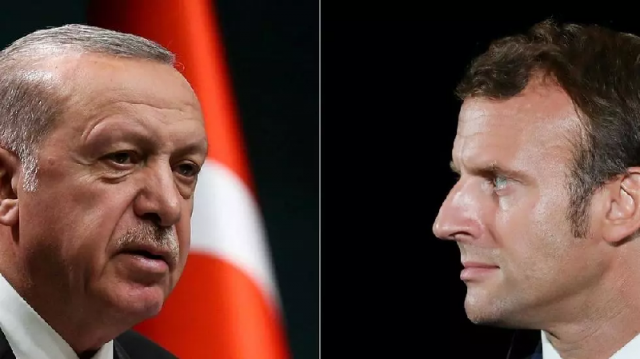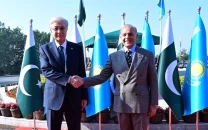Facing Biden, Erdogan extends olive branch to EU
Biden's victory, who once called Turkish leader a ‘good friend’, appears to be reason for Erdogan's shift in tone

Facing a potentially hostile US administration, Turkish President Recep Tayyip Erdogan is trying to break his isolation by mending EU relations, torn by what the bloc views as his bellicose foreign policy.
Ties between Ankara and Brussels have plunged to a nadir not seen since Turkey formally opened talks to join the bloc in 2005, a process which is now frozen.
And while Erdogan speaks of turning "a new page", the list of European grievances is long.
Most recently, Brussels began drawing up a list of sanctions over Turkey's hunt for natural gas in the eastern Mediterranean, which triggered a naval standoff with Greece last year.
But older suspicions simmer.
Erdogan's direct military interventions in the Syrian and Libyan conflicts raised hackles in Europe, while his vocal backing of Azerbaijan in the six-week Nagorno-Karabakh war upset Armenia's allies across the West.
Erdogan's threats to send millions of Syrian and other refugees Turkey is hosting to Europe if the bloc fails to provide more funding are a constant menace.
And he has made the animosity personal by attacking French President Emmanuel Macron's treatment of Muslims, which Europe counters by pointing to Turkey's grim record on human rights.
Some believe this standoff is unsustainable for Erdogan.
"Ankara cannot afford an escalation with both the US and Europe, especially with an economy this fragile," a European diplomat told AFP.
'Looking for friends'
Turkey's heavy dependence on Europe is borne out by the numbers.
EU member states accounted for 67.2 per cent of foreign direct investments in Turkey between 2002-2018, according to official data.
With foreign sentiment dented, the Turkish lira lost a fifth of its value against the dollar last year, forcing the central bank to burn through most of its reserves trying to prop up the currency.
Preparing for Biden
US President-elect Joe Biden's victory over Donald Trump, who once called the Turkish leader a "good friend", appears to be at least partially responsible for Erdogan's shift in tone.
"Biden's victory has reshuffled the cards. Turkey expects the next US administration will be less inclined to let it off the hook," the European diplomat said.
Certain appointments by Biden are likely to raise hairs in Ankara, none more so than Brett McGurk's naming to the National Security Council, where he will oversee the Middle East and Africa.
McGurk has been an outspoken critic of Turkey's policy on Syria, where the US supports a Kurdish militia that Ankara blames for attacks on its soil, and will play an important role in shaping Washington's relations with Erdogan.
"This seeming call for a rapprochement with the EU can be interpreted as preparation" for Biden, said Sinem Adar, an associate at the Centre for Applied Turkey Studies in Berlin.
Erdogan was once part of a select group of leaders who could dial up Trump directly on the phone, but Adar said the loss of this privilege with Biden is not the only factor behind the attempted rapprochement.
He faces "mounting domestic pressure due to economic woes accentuated by Covid-19" and a "decreasing vote share" for his ruling party and its nationalist junior partners, Adar said.



















COMMENTS
Comments are moderated and generally will be posted if they are on-topic and not abusive.
For more information, please see our Comments FAQ